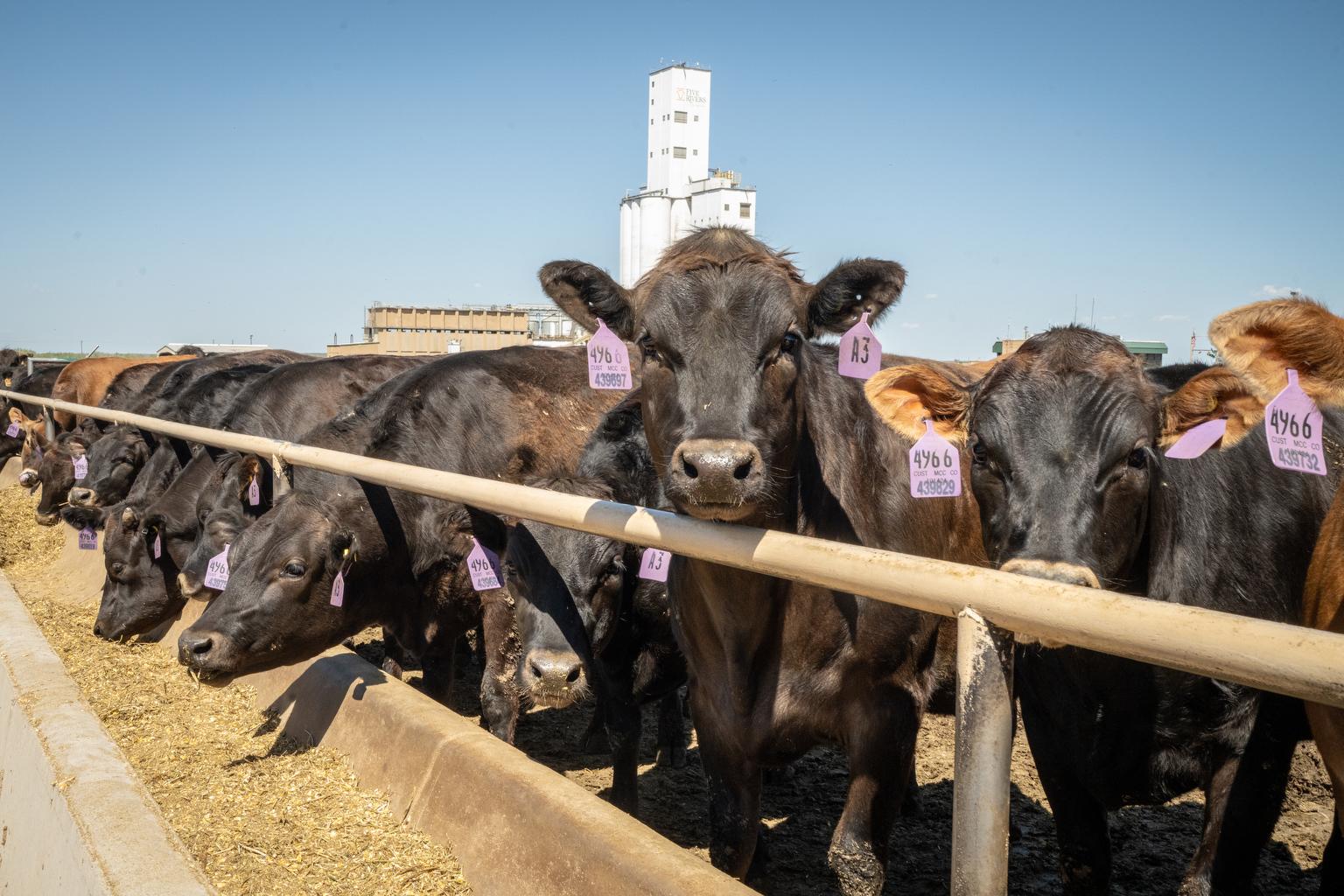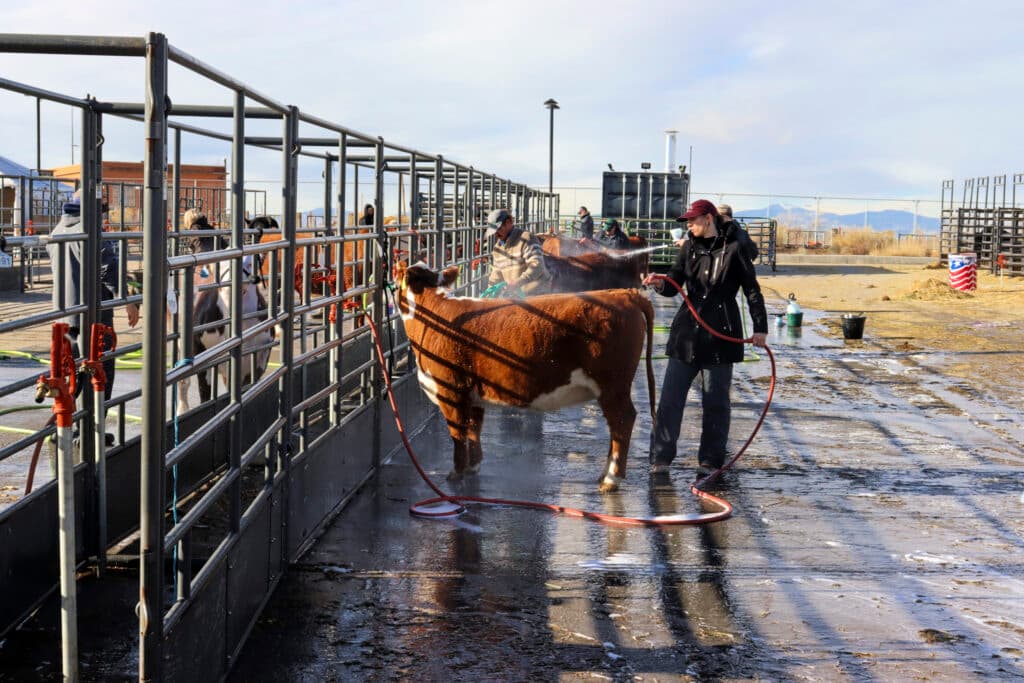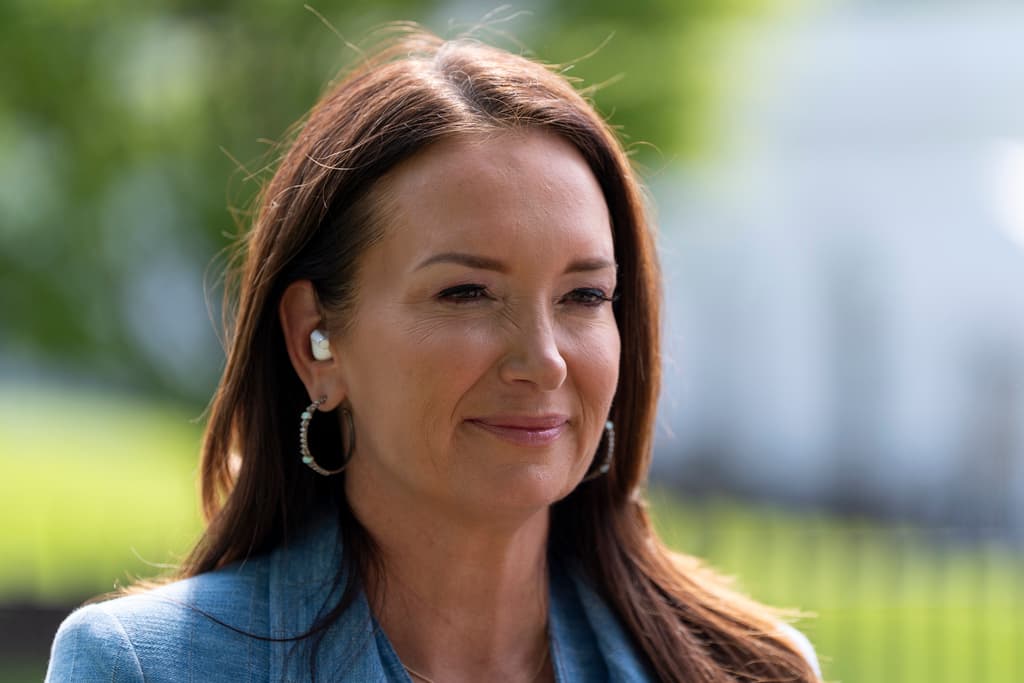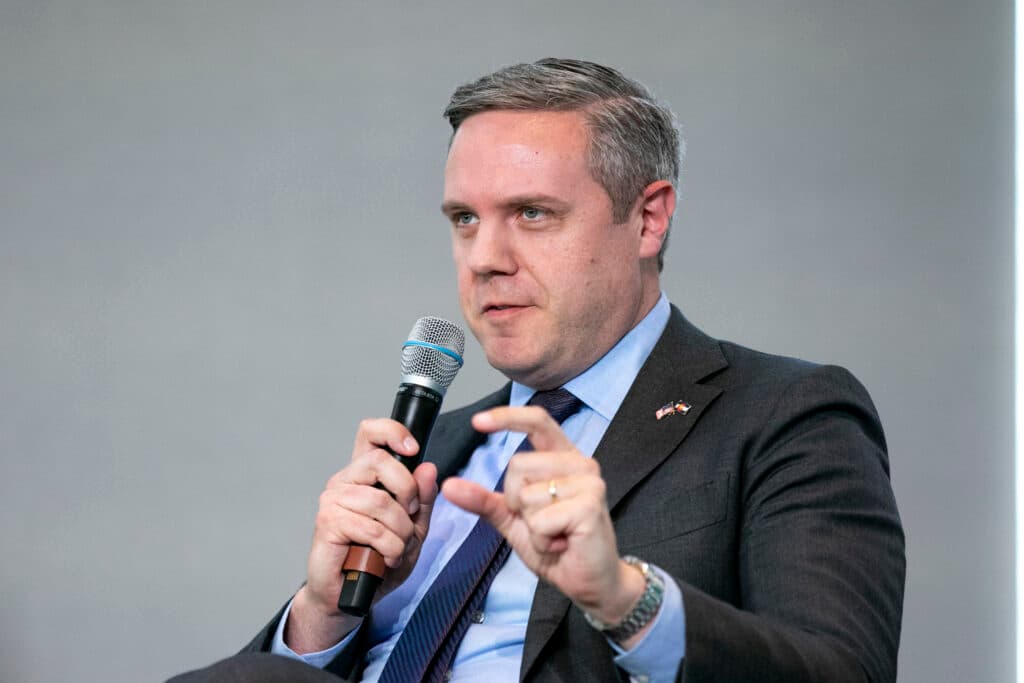
Updated 2:26 p.m., Oct. 24, 2025
Kyler Brown is frustrated.
He works at Elliott Farms LLC in the San Luis Valley with his wife and father-in-law, where they farm potatoes and barley and raise mother cows.
President Donald Trump’s idea to allow more Argentine beef imports to bring down the price for American consumers doesn’t sit well with him.
“Most of the farming sector has not been great in terms of commodity prices and a host of things. And so one of the few bright spots in pretty much all of agriculture was that the cattle industry was finally, maybe making some profit,” Brown told CPR News. “The margins just get tighter and tighter every year. And as much as I might get paid, actually, something pretty decent for my cattle this year, if all comes to pass, I still couldn't go and buy a brand new truck.”
Brown’s not the only one who has a beef with Trump’s proposal to quadruple imports from Argentina, a country he offered a $20 billion bailout to, and whose soybean sales to China have helped replace those from U.S. farmers.
“They’re finally able to replace equipment that they haven’t been able to replace in years, that they’ve been repairing with baling wire and duct tape because they didn’t have the money to upgrade,” said Chad Franke, president of Rocky Mountain Farmers Union. “Finally, we get to a point where cattle producers are making fair profits and to say that now is the time to, you know, disrupt that market, I don't think is a good idea.”

While beef prices have increased since COVID — up 51 percent in five years, according to federal data — the price of cattle has also climbed.
Erin Spaur, executive Vice President of the Colorado Cattlemen’s Association, said there are a lot of reasons why beef prices are up, including “the cattle herd is at the lowest numbers that we've had since I believe the ’60s … that is ultimately what we find is driving high beef prices and high cattle prices for producers.”
There are other ways she thinks the administration could work to lower beef prices, such as removing red tape to allow more cattle to graze on public lands and making sure public programs are available to deal with issues like drought, or expanding the number of packing plants, both small and large.
The fight is causing a rift between Trump and an industry that has long stood behind him.
“The National Cattlemen’s Beef Association and its members cannot stand behind the President while he undercuts the future of family farmers and ranchers by importing Argentinian beef in an attempt to influence prices,” said NCBA CEO Colin Woodall. Up until this point, the organization has supported much of Trump’s agenda, including increased tariffs.
Trump hasn’t backed down from his plan and rather seems to be doubling down. In a social media post, he said while he loves cattle ranchers, they “don’t understand that the only reason they are doing so well, for the first time in decades, is because I put Tariffs on cattle coming into the United States ... If it weren’t for me, they would be doing just as they’ve done for the past 20 years — Terrible!”
The president wrote it’s important to get prices at the grocery store down “because the consumer is a very big factor in my thinking, also!”

Agriculture Secretary Brooke Rollins has tried to downplay the import increase, saying in reality it would be a fraction of the 12 million metric tons of beef Americans consume, much of which is produced domestically.
Still, Ashley House with the Colorado Farm Bureau said she hopes the Trump Administration “will act with restraint and careful consideration on proposed Argentinian imports. Argentinian cuts directly compete with demand for American ribeyes, for example, so any action should think critically about our ability to remain food independent and uphold our reputation for the consumer.”
Rare bipartisan congressional pushback on Trump’s proposal
Colorado Sen. Michael Bennet, who sits on the Senate Agriculture committee, ripped Trump’s proposal on social media. “This is a betrayal of Colorado’s ranchers, and I will do everything I can in my position… to fight for them.”
In 2022, Colorado exported more than $1.6 billion in beef, according to the Colorado Department of Agriculture.
While Democratic opposition to Trump is par for the course, Republicans are also pushing back — publicly and privately.
Earlier this week, at a lunch with Trump, many Republican Senators expressed their reservations about the idea.
“He got confronted by several of us from farm country about the beef situation and urging free market solutions, (letting) the market work and the importance of our ranchers,” GOP Sen. Kevin Cramer told reporters.
GOP Rep. Gabe Evans, whose district includes Weld County, said in a statement, “While Republicans and the Administration have worked to support our producers through efforts like the Working Families Tax Cut Act, the proposal to purchase Argentinian beef raises serious concerns. Colorado farmers and ranchers deserve leaders who will stand with them.”

Republican Rep. Jeff Hurd, whose district spans the Western Slope and Southern Colorado, said he’s been hearing a lot from ranchers concerned about the plan.
“I think our policy should reward the hard work of Colorado ranchers, not undercut them with imports that don't meet the same standards,” he told CPR News.
Hurd said he’s been working directly with the White House and the Secretary of Agriculture, “encouraging them to evaluate this carefully.”
“When you raise the best beef in the world, people are going to want it. That's what's driving demand,” Hurd said. “What I've been explaining to the White House and to the Secretary of Agriculture behind the scenes is that beef prices are higher in part because American families value quality, they value safety, and that the ranchers right here in Colorado deliver both.”
On Friday, Hurd and Democratic Rep. Joe Neguse issued a statement supported by the entire Colorado House delegation pushing back on Trump’s plan.
“While we understand the importance of fair, strong trade relationships and diverse markets, we urge the administration to reconsider the increase in imports of Argentine beef that could pose risk to the domestic cattle market and the countless individuals across our state whose livelihoods depend on it,” it read. The lawmakers also pointed out Colorado’s beef industry is vital to the state’s economy and the country’s food security.
Both Evans and Hurd also signed onto a House letter expressing concerns about the plan and seeking more information earlier in the week.
Still, for farmers like Kyler Brown, the situation just adds another layer of uncertainty for an agriculture industry that’s already experienced a lot of that with tariffs, price swings and now the government shutdown.
His family is waiting to hear whether they can continue to graze some of their cattle on federal lands, but doesn’t know when he’ll get an answer; his government contact has been furloughed.
NPR’s Claudia Grisales contributed reporting to this story.









